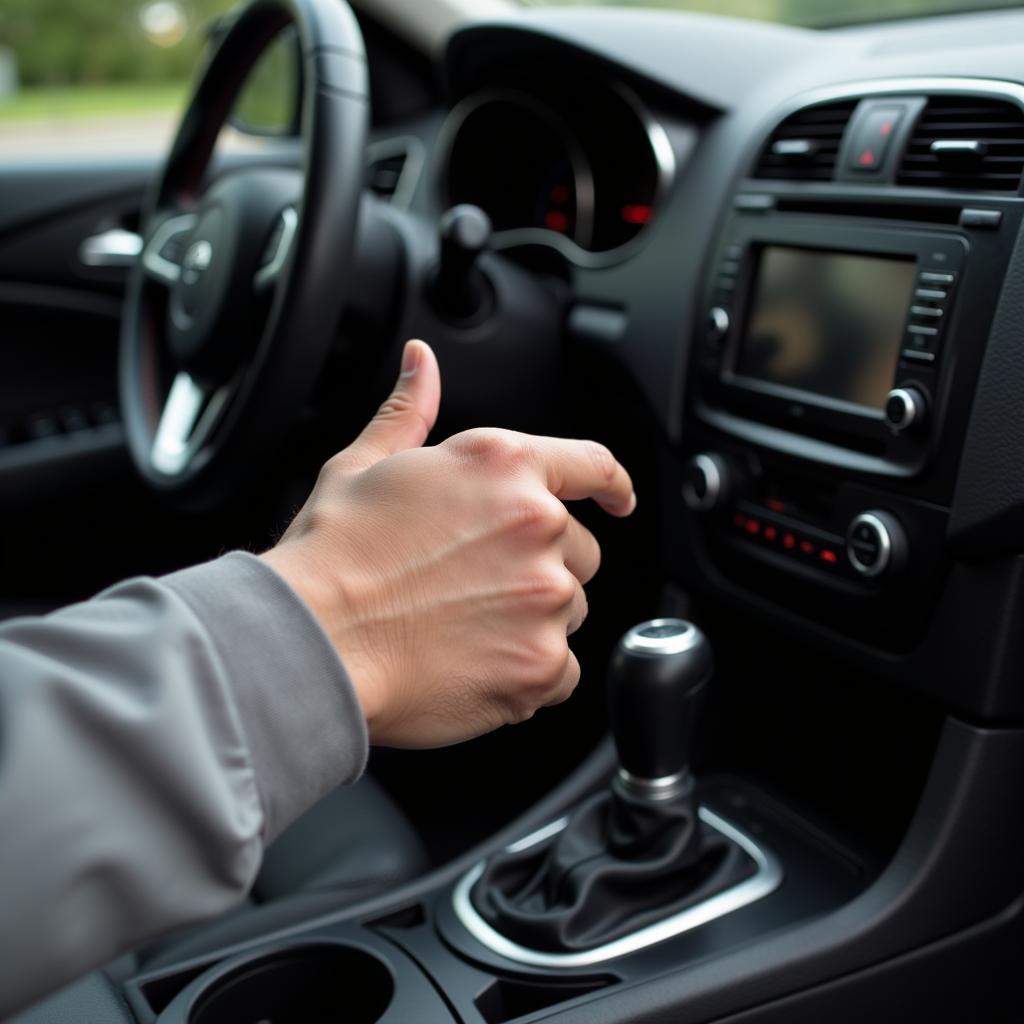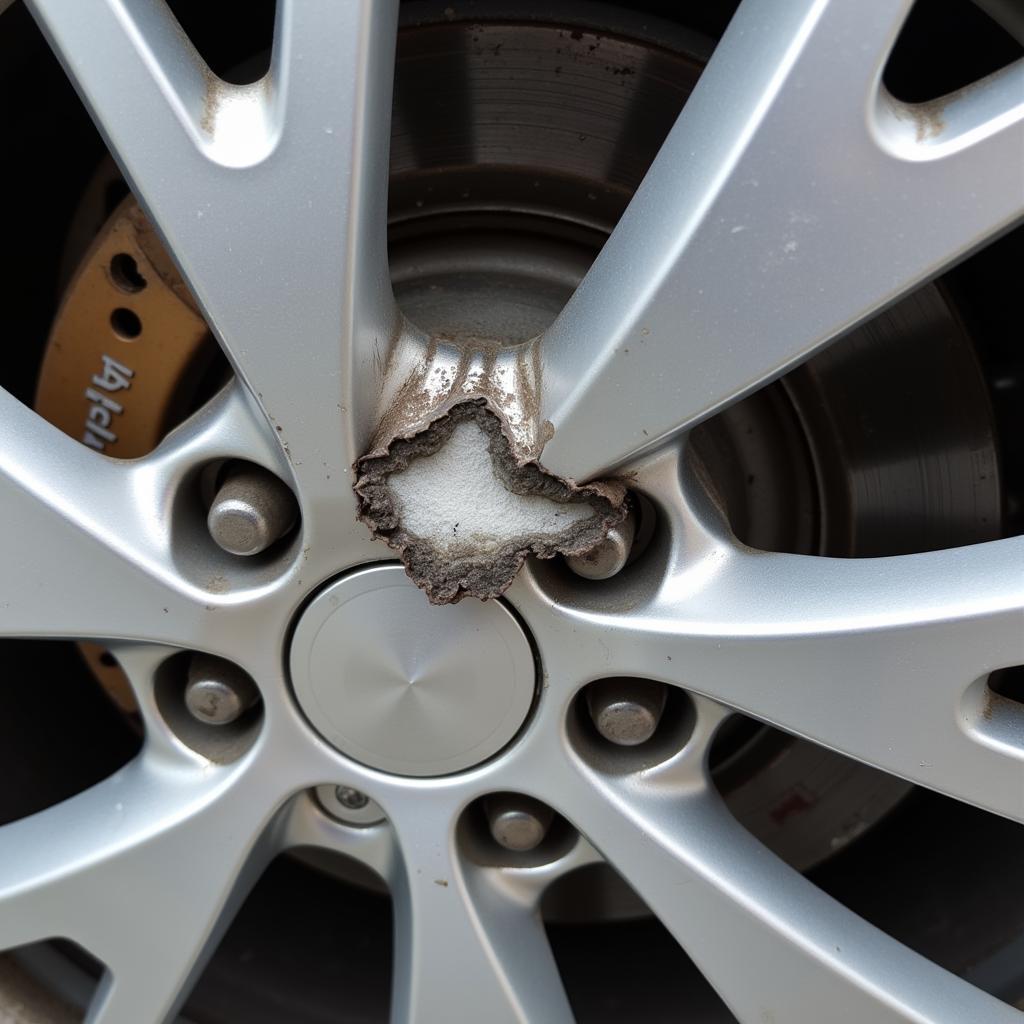New Car Gear Problems can be a frustrating experience. Whether it’s a clunky shift, a grinding noise, or a complete refusal to engage, transmission issues can quickly turn your new car dream into a nightmare. This guide provides comprehensive information on common new car gear problems, helping you understand the causes, diagnose the issues, and explore potential solutions.
 New Car Gear Stick Problems: Difficulty Shifting Gears
New Car Gear Stick Problems: Difficulty Shifting Gears
Understanding Common New Car Gear Problems
Several factors can contribute to new car gear problems. One common culprit is a faulty synchronizer. Synchronizers match the speed of the input shaft and the output shaft in the transmission, allowing for smooth gear changes. If a synchronizer is worn or damaged, it can cause grinding or difficulty shifting. Another potential issue is low transmission fluid. Just like your engine, your transmission relies on fluid for lubrication and cooling. Low fluid levels can lead to increased friction, overheating, and ultimately, gear problems. Clutch issues, especially in manual transmissions, can also manifest as gear problems. A worn clutch lining can make it difficult to engage gears smoothly. If you’re experiencing a car math problem, you might want to consider the implications for your vehicle’s performance. Similar to clutch lining problem car, gear issues can seriously impact how your car operates.
Diagnosing New Car Gear Problems
Diagnosing gear problems requires a systematic approach. Start by paying close attention to the specific symptoms. Is the problem intermittent or consistent? Does it occur only when shifting into a specific gear? Does the car make any unusual noises? These details are crucial for pinpointing the source of the problem.
- Check the Transmission Fluid: The first step is to check the transmission fluid level and condition. If the fluid is low or appears burnt, it’s a sign of a potential problem.
- Listen for Noises: Grinding noises during shifting often indicate a synchronizer issue. A whining noise could point to a problem with the bearings or gears themselves.
- Test the Clutch (Manual Transmission): If you have a manual transmission, test the clutch engagement. Difficulty shifting or a slipping clutch could be the root of the problem.
- Consult a Professional: If you’re unsure about the diagnosis, it’s best to consult a qualified mechanic. They have the expertise and tools to accurately diagnose and repair transmission issues. You might be experiencing similar problems to pontiac car problems, and professional help is often necessary.
Addressing New Car Gear Problems
Once the problem has been diagnosed, several solutions are available depending on the severity and cause of the issue. Sometimes, a simple fluid change or clutch adjustment can resolve the problem. In other cases, more extensive repairs, such as replacing a synchronizer or rebuilding the transmission, might be necessary. Remember that addressing gear problems promptly is crucial to prevent further damage and ensure the longevity of your transmission. For issues with starting your vehicle, refer to the starter car problem guide for helpful information.
Why are gear problems more common in new cars than older models?
While not necessarily more common, they can feel more jarring in a new car. Manufacturing defects, improper break-in procedures, and even software glitches can occasionally lead to gear problems in new vehicles.
“Modern transmissions are complex pieces of machinery,” explains John Smith, a seasoned automotive engineer. “Even minor discrepancies in manufacturing or assembly can lead to noticeable performance issues.”
What should I do if my new car’s gear slips?
If your gear slips, pull over safely as soon as possible and contact your dealer or a qualified mechanic. Driving with a slipping gear can be dangerous and can cause further damage to the transmission.
“Ignoring a slipping gear is like ignoring a flashing check engine light,” says Jane Doe, an experienced automotive technician. “It’s a warning sign that something is wrong, and delaying action can lead to more costly repairs down the road.” If you own a golf cart, you might encounter similar issues like club car starter problems.
Conclusion
New car gear problems can be a significant inconvenience, but with the right information and resources, you can effectively address them. By understanding the common causes, diagnostic procedures, and available solutions, you can take proactive steps to ensure a smooth and enjoyable driving experience. Remember to contact AutoTipPro at +1 (641) 206-8880 or visit our office at 500 N St Mary’s St, San Antonio, TX 78205, United States for further assistance with your new car gear problems.





Leave a Reply